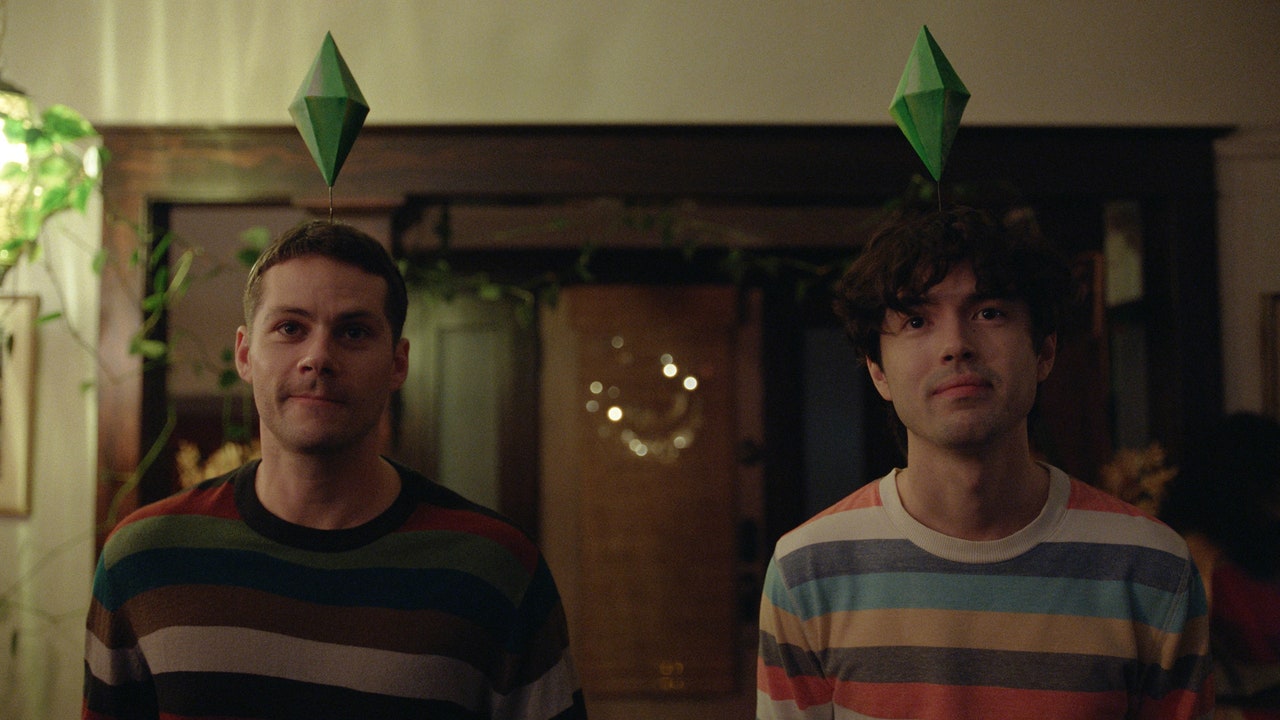There is a sort of superstition—or maybe a belief based on observable pattern—that opening-day movies at the Sundance Film Festival aren’t so great.
There is a sort of superstition—or maybe a belief based on observable pattern—that opening-day movies at the Sundance Film Festival aren’t so great. Outliers exist, of course: Whiplash was an opening night movie, as was the much less heralded but terrific Tamara Jenkins film Private Life. Typically, though, the first day of Sundance is devoted to detritus with star appeal that will draw crowds, but won’t hold up against the more hearty fare to come.
And so I stood dutifully in line for Twinless on Thursday, hoping for okay at best. The film’s logline suggests subtle Sundance filler: two men meet at a support group for people who have lost twin siblings and an unlikely friendship ensues. It’s not tough to imagine the twee movie that could easily arise from that setup—and play plenty well at Sundance. It would be chuckled at, sold to a distributor for a modest price, and then essentially disappear.
I hope that is not the fate of Twinless, a singular, beguiling film. Writer-director James Sweeney, who also co-stars, does trade in some of the stereotypical quirk and tic of Park City ephemera. But he deftly stitches those fabrics into something novel, a probing and personal dramedy about men and loneliness and grief’s hollow aftermath. Twinless announces the ascendancy of a thrilling filmmaker.
It’s tough to talk about Twinless without revealing a crucial facet of its plot, but I will try. The movie centers on two 30ish men, Roman (Dylan O’Brien) and Denis (Sweeney), who unite in grief over their brothers. Denis is reedy and shy and gay; Roman is a sweet straight oaf with an incensed streak. In normal life, they would probably never be friends, but their unique and tragic circumstances quickly bond them to one another.
In that way, Twinless is a compelling look at a great divide bridged: between hetero and homo, masc and… not. Sweeney riffs on that topic with a comic touch, while also making some stern sociological inquest. Roman does, perhaps, represent the many real men his age who are alienated by their learned and cultivated aloofness—classic masculinity has become a prison. Denis, in all his fey neuroticism, offers an escape, an opportunity for Roman to admit that, without his twin brother, he has no one to comfort him, to keep him company, to tether him to the world.
On the other side, there is the problem of Denis’s attraction. Denis is also seeking rescue from his solitude, but he might want more than Roman does—a stifled yearning that’s probably familiar to many gay men who have similarly ached for a guy forever beyond their grasp. At first, I bristled at Sweeney’s bleak assessment of the gay condition, its picture of frustrated and pathetic longing. But Twinless works past that sometimes noxious cliché and finds the truth at its core, satirizing and sympathizing with a primal gay pain. There is a twinge of Mike White at play here, a obscure mordancy mixed with kindness.
American gay cinema is in a strange place these days, at once liberated and defensive. Too often, movies about gay characters have those characters lecturing their audience about The Issues, moralizing in didactic political tones. Other films are frivolous and over generalized, happily reveling in the freedoms of the 21st century but painting in too broad strokes. Twinless avoids those traps, keeping its gaze focused tightly on Denis the individual; what anyone extrapolates beyond that is entirely up to them. It’s refreshing to see a queer movie that trusts the intelligence of its audience, that is not afraid to leave its vernacular unexplained. The film’s brief but graphic bit of sex is excitingly frank. It’s there simply as a fact of the story, not designed for shock value or as an act of triumphant defiance—and it’s comical, too.
Twinless is a disarmingly assured film. Sweeney’s stylistic flourishes and intricate writing flow with an basic cadence. He shoots Portland (Oregon, not Maine) in lovely chiaroscuro, at once lulling and menacing. The score, a wonder of aching cello and wistful piano by Jung Jae-il, brings to mind the jaunty-sad lilt of the overdue, great Ryuichi Sakamoto. Twinless is an expertly tailored film, but never flashy about its grand design.
The film’s greatest asset, maybe, is O’Brien, an actor who has jumped from teen TV horror to a teen dystopia film franchise to an intriguing and varied resumé of grownup roles. Twinless marks a great breakthrough, finally providing a showcase for the full range of O’Brien’s talent. As Roman, O’Brien manages the tender calibration of a guy who is bruised, dopey, genial, unsafe. Like Channing Tatum before him, he intriguingly complicates the archetype of the clumsy, lovable brute, but from a flintier angle of attack. O’Brien doesn’t betray his character by going for the basic laugh, and he never lets us forget the profound heartbreak churning at Roman’s center.
For a brief stretch, O’Brien also gets the chance to play Roman’s lost brother, Rocky. In the never-ending debate about whether straight actors can or should play gay, O’Brien is a fine testament to the pro side of the argument. Sweeney has O’Brien swish and bitch it up, but in a wholly credible way. In the keen gaze of this film, Rocky represents a certain kind of risky gay ideal, equally aspired to and reviled. Around him glimmers the shrewd sadness and wish of the film, as it does around shattered and reeling Roman. Sweeney regards them both—and shifty, fumbling Denis—with forlorn wonder. What a strange trial it is to know people and to want people. And how nice it might be, then, to have a built-in companion for life, at least one person in this chilly and confusing world who is guaranteed to you from birth.

COMMENTS